1. Society's attitude towards marriage has changed
1.1. Rapid social change
1.1.1. weakening of traditional values and of moral and religious convictions
1.1.2. people lack support of closely-knit community with shared values
1.1.2.1. city life more private and individual, often lacks true sense of community
1.2. Higher expectations from life
1.2.1. expect more from marriage, in terms of personal, emotional, satisfaction, material well-being, etc
1.3. New styles of relationship between sexes
1.3.1. equality of women and men recognized to a greater extent
1.3.2. women have more social freedom and more job openings and career opportunities
1.3.2.1. more economically independent of husbands, whether through personal earnings or social security
1.3.2.1.1. adjustment in traditional roles of husband and wife
1.4. Older and younger generation lead very different lifestyles - generation gap can develop even between parents and children
1.4.1. new culture develops
1.5. Economic and social conditions
1.5.1. high standard of livings, prices increasing (especially housing, etc)
1.5.1.1. impulse on getting married fast so as to be able to enjoy incentives for couples
2. Disagree
2.1. against gay marriages/ homosexuality
2.1.1. if gay couples adopt children
2.1.1.1. More children living in gay homes means more children living lives absent a relationship with at least one biological parent.
2.1.1.1.1. children suffer from emotional pain and
2.1.2. if gay couples decides against having children
2.1.2.1. Marriage would no longer be about children or future generations, but would be merely a private relationship of consenting adults that is solely about satisfying their desires.
2.1.2.1.1. send a message that mothers and fathers don't matter to children
2.1.3. side note: redefining marriage to allow gay marriages will be encouraging gay lifestyle
2.1.3.1. shouldn't be encouraged because research shows it results in lower life expectancy, psychological problems and other complications
2.2. People tend to neglect the importance of maintaining and strengthening marriage, instead, for the sake of moving on from an unhappy relationship, they choose divorce, which is a rather quick process
2.2.1. The tendency of more people being casual towards marriage does not justify the need of redefining marriage. If marriage is redefined to become a loose relationship whereby divorce is considered normal, the instability of family will be resulted
2.2.1.1. The redefinition causes people to consider divorce when their marriage gets dysfunctional and their decision to divorce affects their children in many ways
2.2.1.1.1. They may be fearful of the future because they do not know what to expect from the life without the presence of at least one parent
2.2.1.1.2. They may suffer from the sense of insecurity because they have witnessed the separation of their parents and do not dare to commit themselves into any close relationship, in fear of being hurt
2.2.1.1.3. They may suffer from the sense of inferiority in front of their friends or classmates, for they feel that their families are incomplete
2.2.1.2. The redefinition may approve short-term marriage whereby divorce becomes the norm. This may deter the couple from committing fully into their marriage or even getting married
2.2.1.2.1. Without the couple being committed fully into their marriage, the small family formed may not be a strong one. Thus it does not serve as a support and instead, a lack of sense of security may be resulted and the quality of life for those couples may not be as high as expected
2.2.1.2.2. In fear of a future divorce, the couple may not be willing to share with their spouse their assets or even any information about their financial state, in order to protect themselves. The lack of transparency can lead to mistrust and suspicion, leading to the failure of marriage
2.2.1.2.3. People may not choose to get married because after being redefined, marriage may be nothing different from a relationship between two people in love with each other. However, without marriage, their relationship will not be even less stable and it may lead to a undesirable situation whereby many people do not have a stable family and suffer from loneliness and a lack of strong support
2.2.1.3. The older generation who regard marriage as a relationship which requires tolerance, mutual understanding, careful maintenance and endurance may not agree with the redefinition of marriage which their daughters and sons embrace. This results in disagreement within the family, which causes quarrelling and fighting, and the stability of the family will be threatened.
2.3. The possibility of maintenance being obviated
2.3.1. Definition of maintenance
2.3.1.1. legal obligation to provide financial support to one's spouse from the other spouse after marital separation or from the ex-spouse upon divorce
2.3.2. Ways of redefinition of marriage
2.3.2.1. Marriage redefined to the relationship of love and sexual intimacy of husband and wife
2.3.2.1.1. Husbands may not want to give wives allowance despite their contributions and sacrifices such as giving up their high-paying job and work as full-time housewives, taking care of the house chores and husbands, perhaps even children's daily nutrition instead. Though such sacrifices are voluntary, they cannot be ignored.
2.3.2.2. Marriage redefined to a short term commitment instead of a life long commitment
2.3.2.2.1. After divorce
